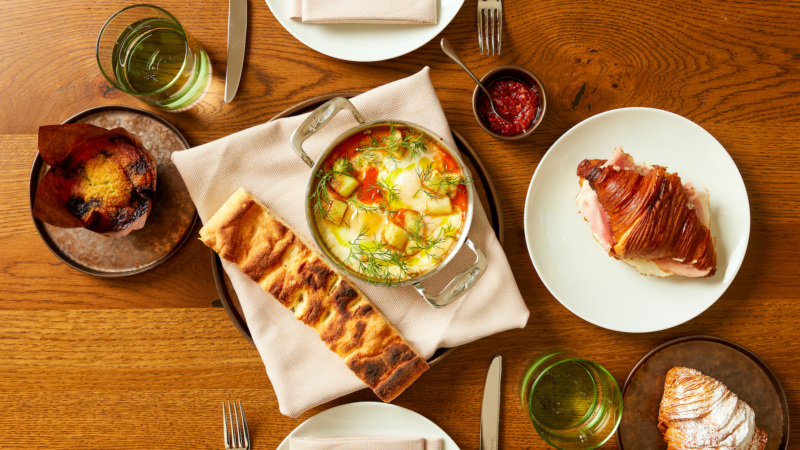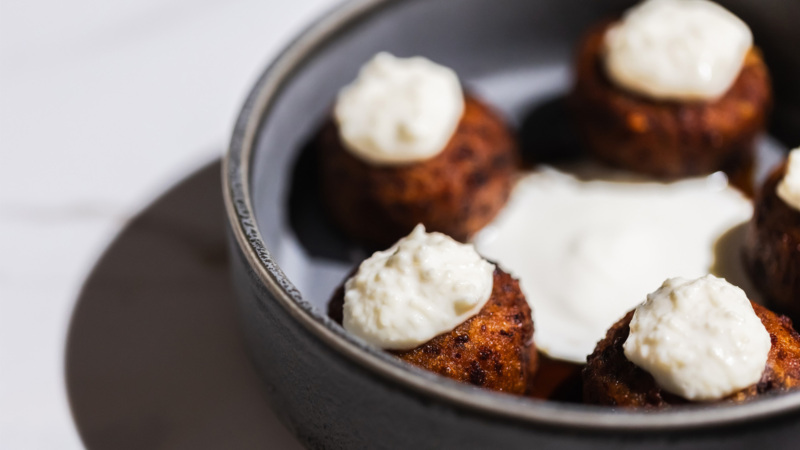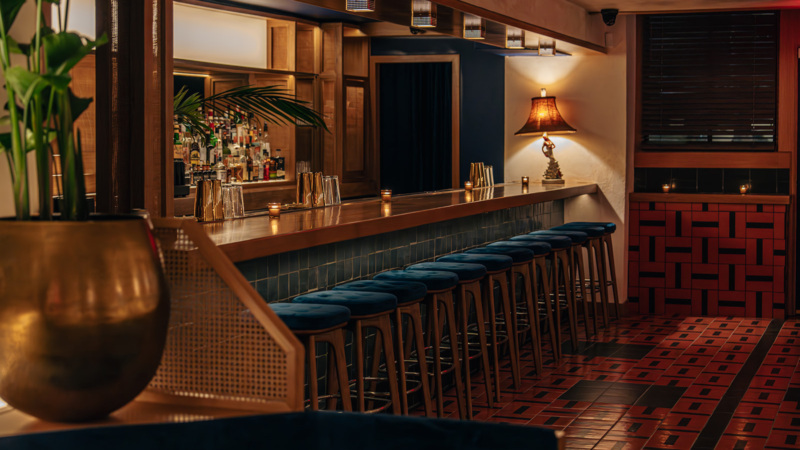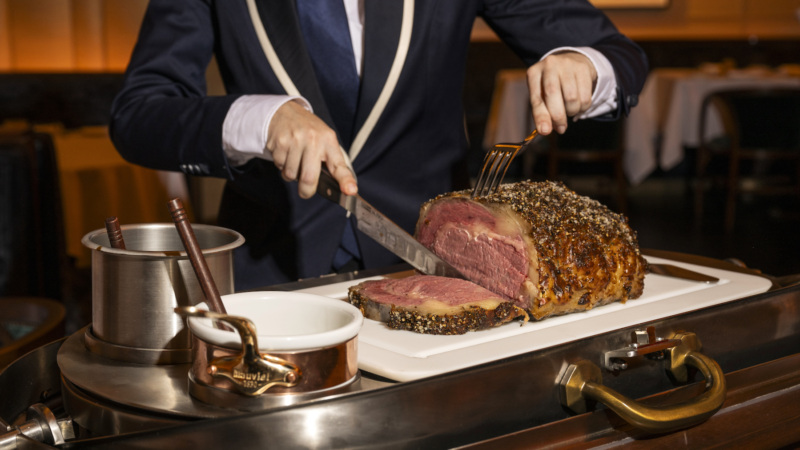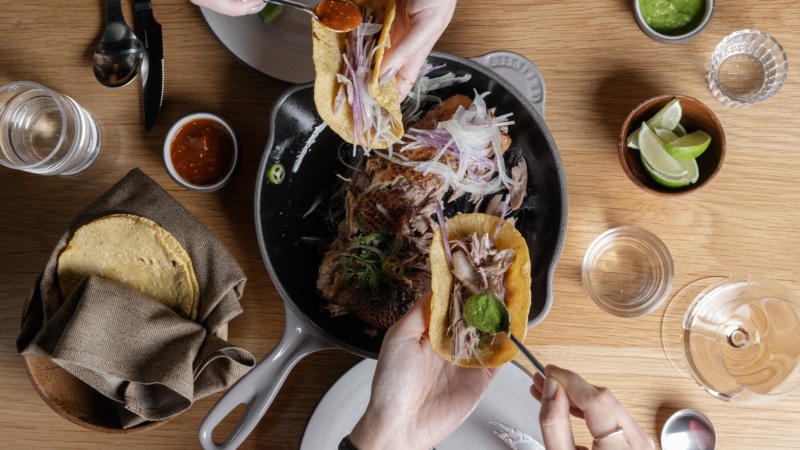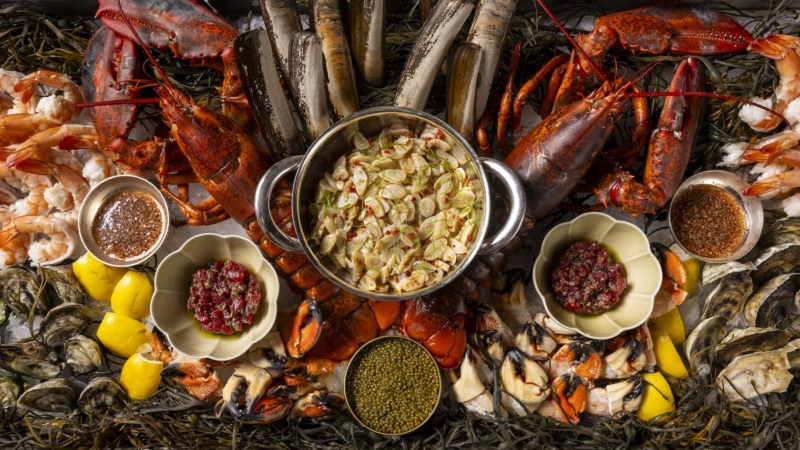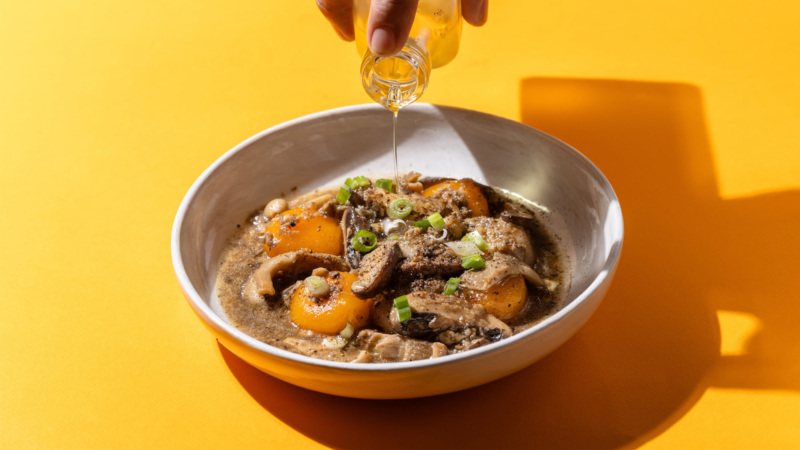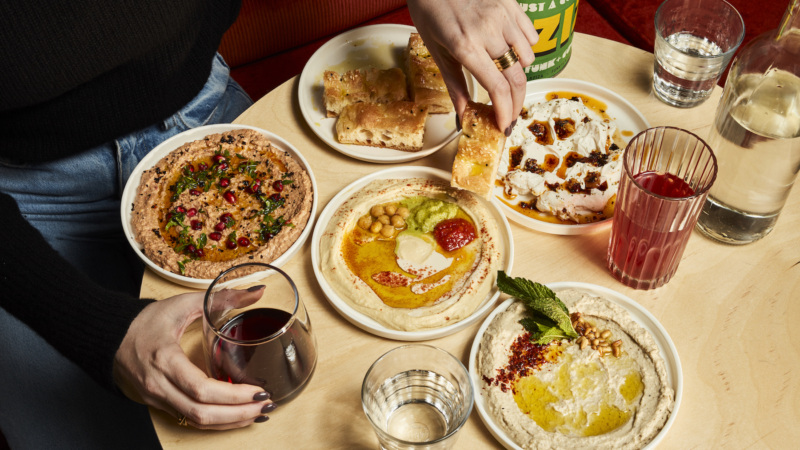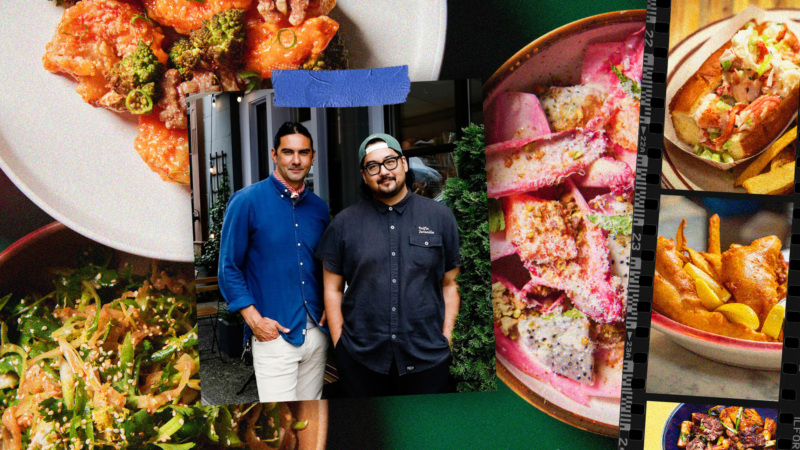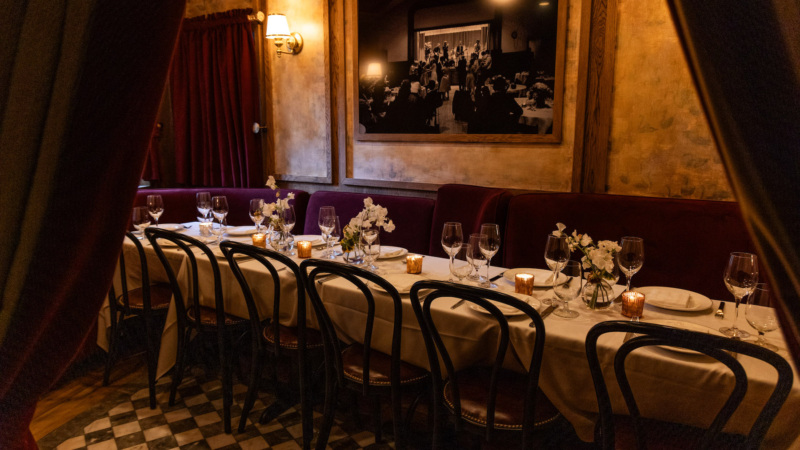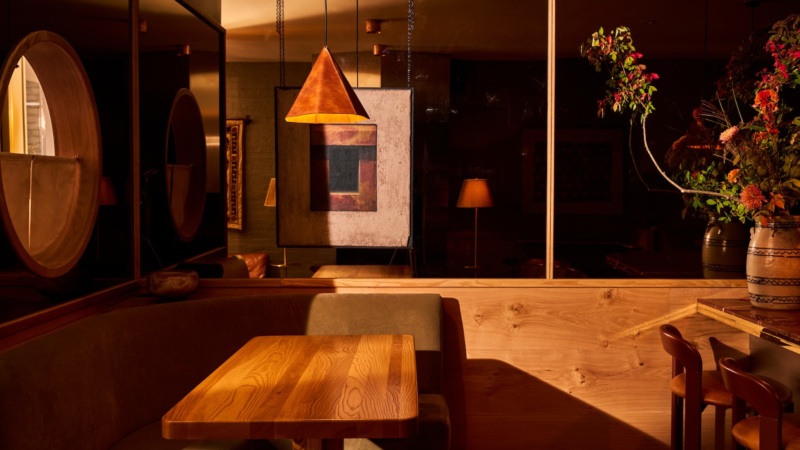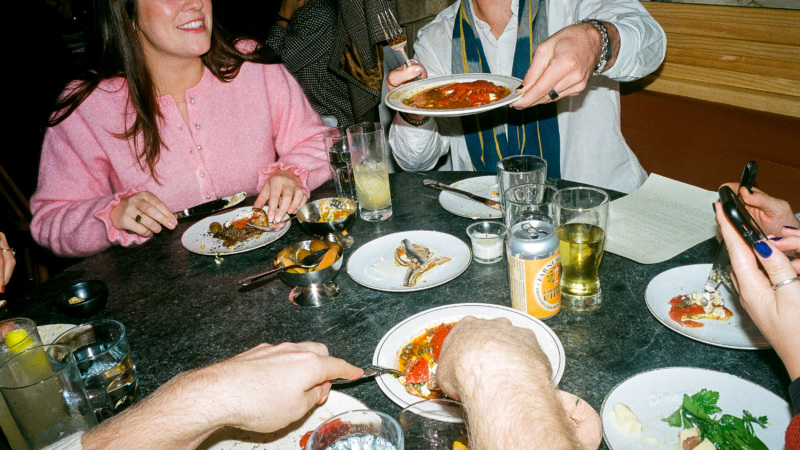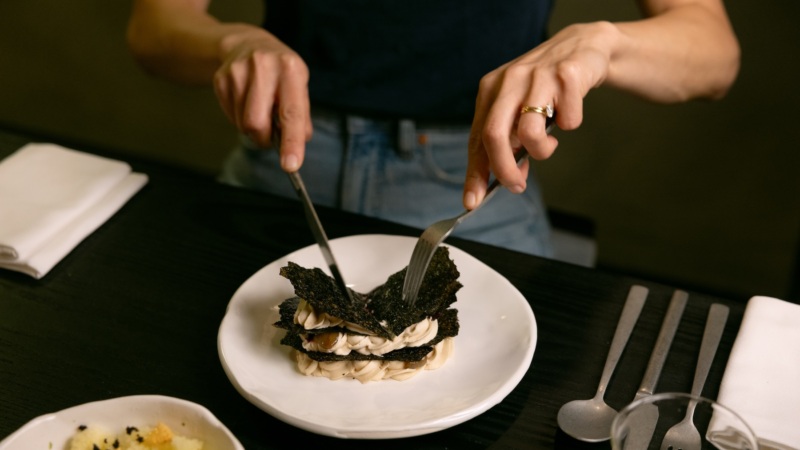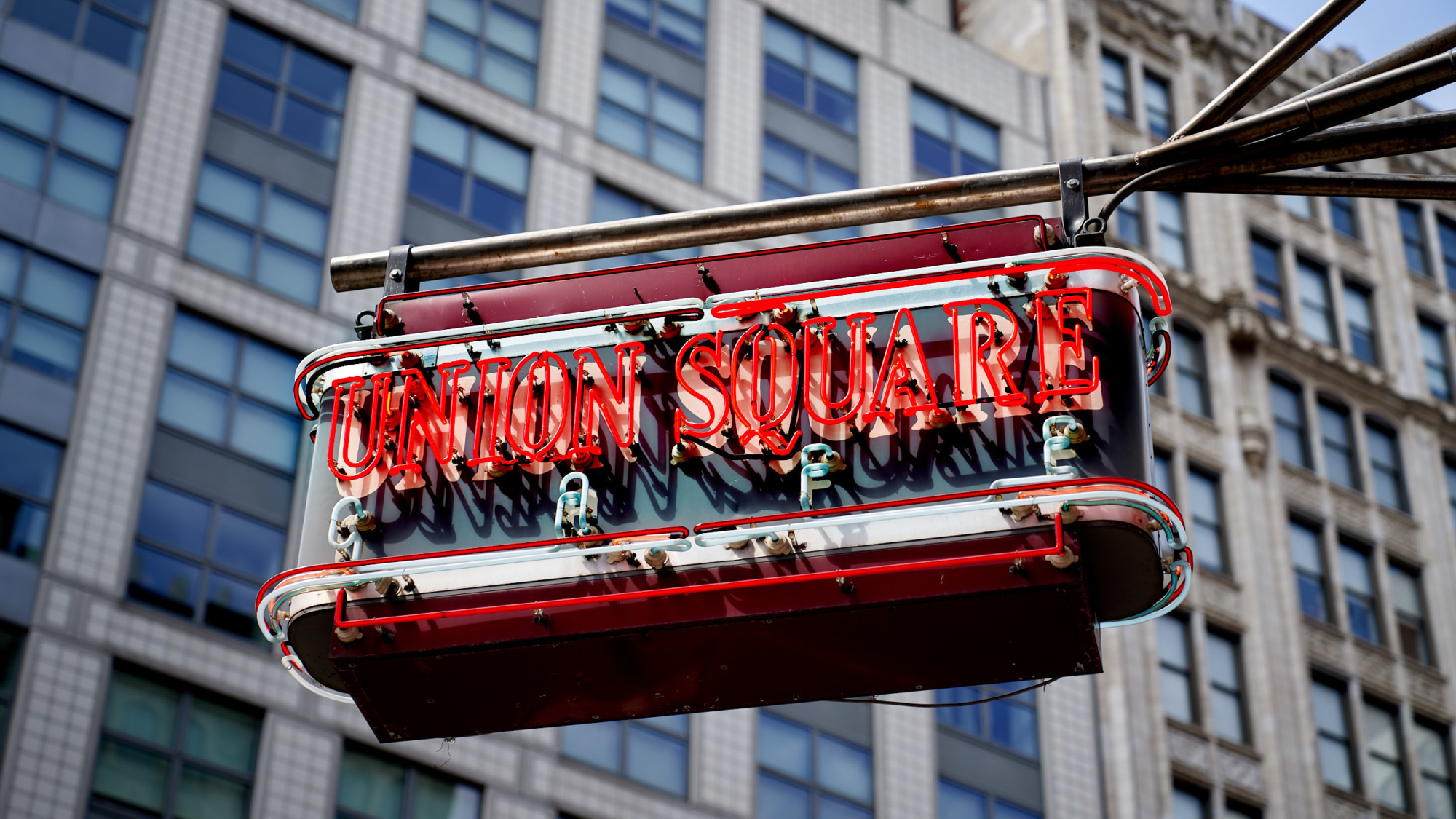
On Longevity and Burgers at Union Square Cafe
When I was eight years old, my mom took me for lunch at Union Square Cafe. We were there for the burger.
I still remember my first bite. The marbled, medium-rare meat was charred crispy on the outside, its flavorful juices seeping into a sturdy yet soft brioche bun. A slice of nutty cheddar cheese had been melted on top of the patty, encasing its sides. This is what a burger should taste like, I realized. “You like it?” My mom said, laughing, knowing the answer.
My lesson that day went beyond the burger. Union Square Cafe taught me that great restaurants could produce food and an environment that couldn’t be replicated at home. I soon understood how something as simple as a perfectly executed burger could imprint in my memory an attachment, and give me a reason to return again and again. Fun fact: The burger is just one of two items that has survived every menu edit throughout Union Square Cafe’s 35-year history (the other item is the fried calamari).
That lunch took place in the spring of 2001 when Mark Maynard was the general manager. At that point Maynard had already been at the restaurant for nine years, starting as a 25-year-old host new to New York City. He then moved on to other roles within Union Square Hospitality Group, climbing the ladder at the company where he still works today. Maynard is currently the Director of Operations for bar-focused concepts, including Porchlight and Blue Smoke. I recently called him up to chat about his time at Union Square Cafe, how the restaurant has evolved since its founding in 1985, why it’s been able to endure, and what’s so special about the USC burger.
Maynard: Do you remember where you sat?
I’m pretty sure I sat at the table by the window, directly to the right of the entrance.
Oh, yeah. Table 11!
Could you describe the Union Square Cafe burger?
Wow, I sure can. From an emotional stance, it’s the best version of an American classic. The fact that it’s something that you had everywhere, Americans eat a lot of burgers, but for some reason it was special. I think the fact that it was on a homemade brioche bun was great. The fact that we ground the meat fresh every day was great. It was a blend of chuck and sirloin, and each of those give [the patty] something different; the chuck gives it a little more fat and the sirloin gives it a little more flavor. The fact that it was grilled on an open flame made it a little crunchy on the outside. And I’m not sure if you had it, but we always offered cheese and bacon. I’d say probably 75% of people got either cheese, which would have been freshly sliced aged cheddar, or bacon that we smoked in-house. So all the components were done specially. People don’t necessarily appreciate that, but I think that when the meat is ground that morning and the bread comes out of the oven at 11:00 AM and you’re eating it at 1:00 PM, that actually makes a huge difference, whether you’re eight years old or 58 years old. I also like how the burger wasn’t trying to be fancy. We serve Heinz ketchup with it, we weren’t trying to reinvent the wheel — we were just trying to make the wheel a lot tastier.
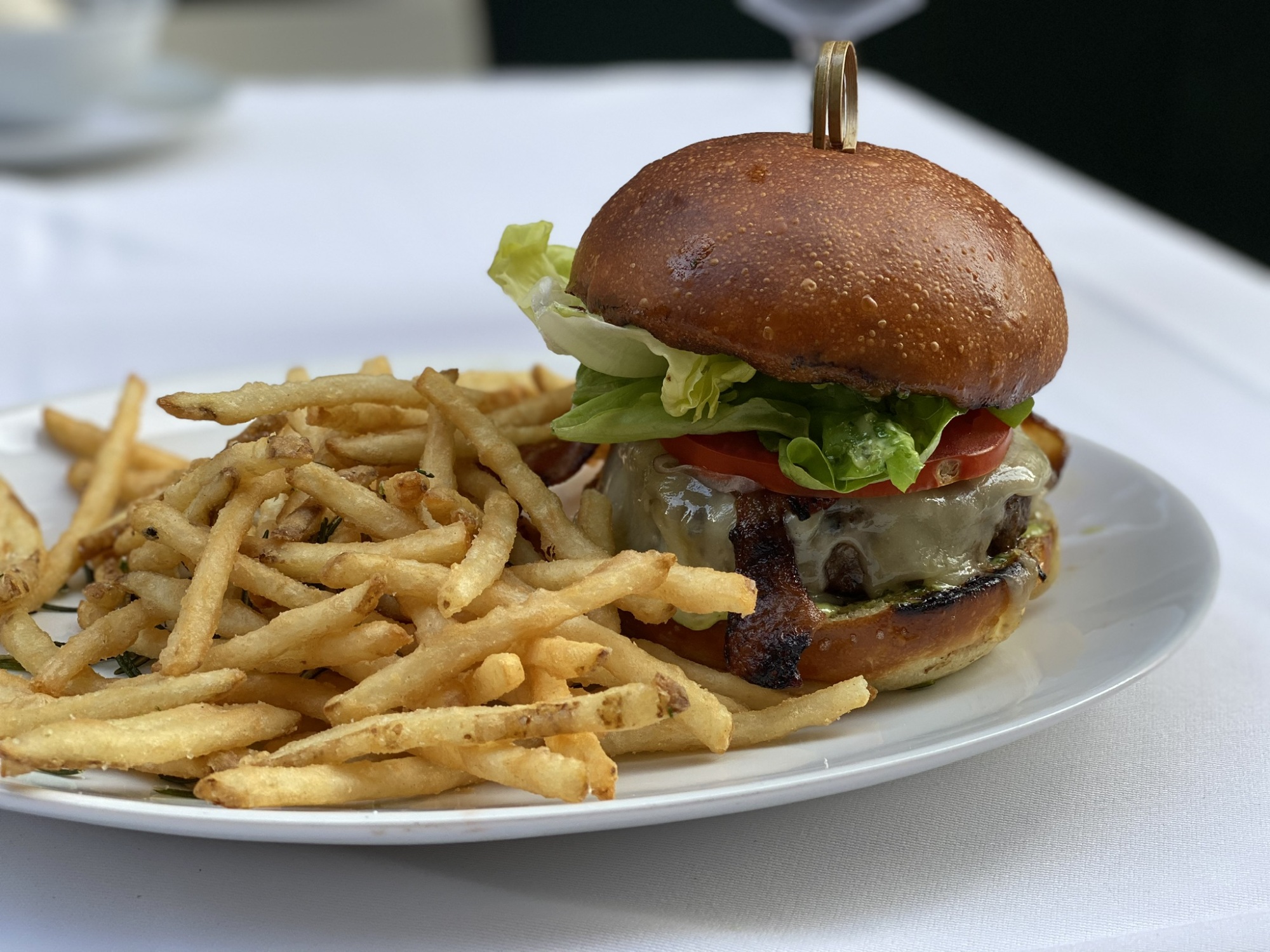
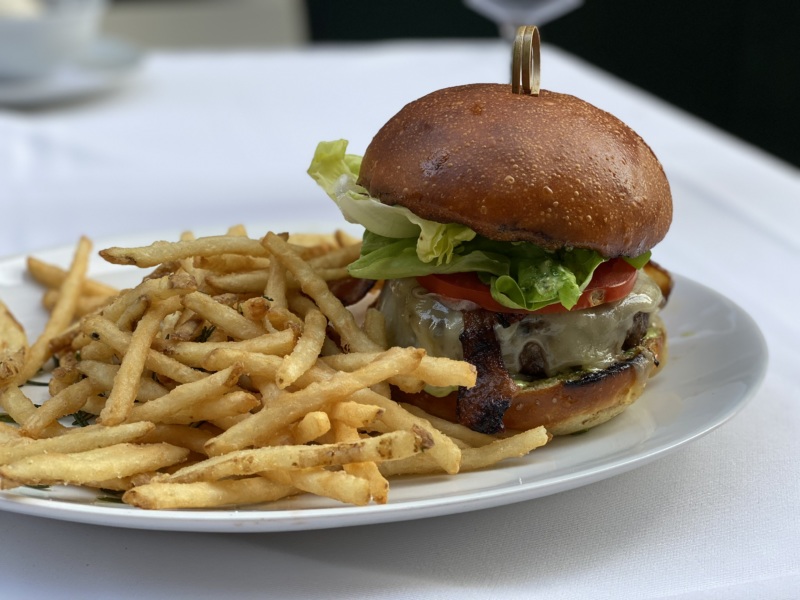
If I remember correctly, the burger is only offered at lunch. Is that right?
That’s correct.
But I also remember that the next time I came back, which was for dinner, my mom called ahead to order the burger so that I could have it again, even though it wasn’t on the nighttime menu. Did a lot of people have the foresight to do that?
I would say that it was very rare. The other thing which we didn’t mention is the fries, which were cut every morning. And they were twice-fried.
Great point — fries are definitely an important part of the experience, that’s for sure. Do you have a favorite memory from your time at Union Square Cafe?
Union Square Cafe was where I grew up. I started as a 25-year-old part-time host and then ended up as a 30-something-year-old manager. I had just moved to New York, Union Square Cafe was the beginning of the rest of my life, so that’s kind of a challenging one. I loved the regular guests. The reason I stayed in the company is we just wanted you to feel good, whether you were a tourist from Kansas or some sort of power broker, we treated you pretty much the same and that was really rare at the time. I moved from a mountain in Vermont, so I had all of these very particular images of what New York was going to be like and the environment at Union Square Cafe wasn’t what I was expecting. People were really nice to each other. I just loved how we worked together as a team to make people happy there. That was really addictive. How you felt when you came in for the burger, a hundred other people that day felt the same way, if we were doing a good job. That’s not a particular memory, I waited on a lot of famous people, that was pretty cool … but I don’t know if those were the highlights, necessarily.
How would you describe a Union Square Cafe regular?
A Union Square Cafe regular, especially because we did have a lot of celebrities, is where they went to not be a celebrity. Whether it was JFK Jr. or Georgio Armani —a lot of fashion people went there — or Rick Ocasek from The Cars, whose wife was the supermodel Paulina Porizkova, she was the hit woman at the time. They were Sunday night regulars. They didn’t want to come during the week, they wanted to come on a Sunday when it was all families. I always thought that was really special. They went to Union Square Cafe because they knew we would treat them just like we treated you when you ordered your burger. It’d be like, ‘Oh, hey Rick and Paulina, great to see you,’ and then I would show them in and then leave them alone. We didn’t comp them, we just made them feel awesome, just like we made everyone feel. That was our goal. We didn’t fawn all over them and ask for their autographs to put up on some stupid wall. And I think they really appreciated that we genuinely just wanted them to be happy.
Do you still eat at Union Square Cafe often?
I celebrated my 50th birthday there a few years ago. I take my kids at least twice a year. What I love to do, which is what a lot of our regulars used to do, is to sit at the bar, have a bowl of pasta, a cocktail, a glass of wine, and I’m golden. One of the things that I love about Union Square Cafe is that it has evolved. I think it hasn’t gotten enough credit for how much it’s evolved, but they have a great bar program and an awesome wine list, so I love sitting there. My girlfriend and I went on what must’ve been March 10th, we sat at the upstairs bar and we had six appetizers, we each had a cocktail and two glasses of wine and that was like a night in heaven to be able to sit at the bar and taste all of these different things … So I’d say about six times a year. Probably two of them are alone and then four of them are celebrating with someone, even if it’s just celebrating that I miss them.
Besides the obvious relocation back in 2016, in what ways do you think Union Square Cafe is different today than it was back when you were working there?
The core is the same. It’s always challenging to be a legacy. Whether you’re a classic rock band, a fashion designer, or a restaurant, people always remember your greatest hits and they want you to play your greatest hits. The real question is what proportion of your set list goes to your greatest hits and what proportion goes towards your new items? Even when I was the service director, assistant general manager, and general manager there, that was true — and that was 10 years in. If I were to look at the Union Square menu right now, or I guess on March 12th, it was probably 50% greatest hits and 50% new stuff, but those new items were still in the spirit of what Union Square Cafe is, which to me is a place that is very seasonal without being preachy, very comfortable without being stuffy, and casual without being sloppy. I think those are the lines. They manifest themselves slightly differently over the years, but the whole is the same. If 100% of the menu changed every week, that would be disorienting. And if it never changed, it would be boring as hell.
How did you feel when the original USC location closed, even though it was going to be relocated?
This is funny because having run the business for a few years, I was actually really optimistic and sort of relieved because the building it was in was in some ways falling apart. There were things that were out of our control. So I was really hopeful about the fact that we were going to be able to start fresh. The other thing is that I believe that the food has never been better at Union Square Cafe and some of that has to do with Lena [Ciardullo] running the kitchen, she’s bringing in some fresh eyes, but also the equipment is better. It’s a much better kitchen than the one we operated out of from 1985 up until 2015. Without talent, it doesn’t matter what your equipment is, but I think now it has talent and equipment. And as a restaurant guy, I think that that definitely makes a difference.
What is it about Union Square Cafe that has enabled it to endure for so many years?
It goes back to how people feel when they eat there, or even when they walk in the door. We hope they feel better when they leave than when they arrived. The other thing is, if you read William Grimes’ 1999 review for the Times, he talks about how our hospitality hides how tight the service is and he says that that’s the point of Union Square Cafe — that we don’t wear anything on our sleeves, we just want you to feel good. I was the general manager when that review came out and I could not have been more proud. That’s why USC is still around, it has all the technical service, but we don’t want you to notice that; we just want you to notice that you have your fork when you need it, your glass is full when you need it, and you feel good when you eat the food. As a front room employee or as the general manager I knew that we could share joy openly yet it didn’t feel like we were losers. I think that’s still true. What you don’t know about me is that I’m not cynical, but I’m a very skeptical person, so this isn’t a sound bite for me. This is just why I’ve been in the company for 28 years. Because it feels really good to take care of people.
Emily Wilson is a New York writer. Follow her on Twitter and Instagram. Follow Resy, too.

